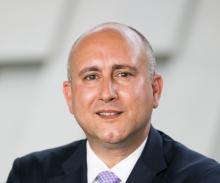A stake in Saudi Aramco may or may not be on the cards, but privatization is already happening in the desert kingdom
When Prince Mohammad bin Salman announced in January that he was keen to sell a stake in Saudi Aramco, the world’s largest oil company, he brought a new level of global attention to the economic reforms under way in the kingdom.
Officials have since rowed back from the idea of selling a stake in the company that produces 10 mn barrels of oil a day with 261 bn barrels in reserves, but the interview with The Economist cemented the young prince’s reputation as a Thatcherite with a mission to accelerate the pace of market reforms.
In fact, Saudi Aramco already has billions of dollars of private capital tied up in various downstream businesses in refining and petrochemicals, and is considering further liberalization in this area. But the focus of the privatization initiative is expected to center on the Public Investment Fund (PIF), a holding company with 100 percent stakes in the railways, healthcare, capital markets, education, agriculture, ports and real estate. The PIF holds assets worth at least SAR15 bn ($4 bn), but could potentially be used as a vehicle to privatize many other state assets.
Other big-ticket items that could hit the auction block include Saudia, the national airline, Tadawul, the stock exchange, and the 4 mn square meters of land the nation owns around Mecca, the most expensive real estate in the world.
In the few months since he was anointed as Deputy Crown Prince, Prince Mohammad has already shown he means business. He was behind spending cuts at the end of last year that prevented the deficit from soaring to 20 percent of GDP. And this year’s budget includes previously unimaginable measures including reduced petrol and utilities subsidies and new sin taxes and levies on vacant land.
In fact, Prince Mohammad is building on a successful, though slow, period of reform during which, for example, the Saudi stock market opened to a small number of qualified foreign investors last year. Privatization has already begun and – importantly – has been successful: one example is the privatization of the Saudia airline catering business in 2014.
The key to increased privatization momentum will be three-fold: local support, investor perception and international investors. It’s imperative that Saudis see the government getting fair value for its assets through professionally executed sales that draw enough serious contenders to ensure they are competitive. Saudi Arabia must strengthen investor confidence in already listed companies. And the kingdom must tear down the wall that still prevents international capital from entering the markets.
All of these issues can be addressed by upgrading the investor relations capabilities in the kingdom, at both corporations and the financial market authorities. When it opened the Tadawul stock market to direct foreign investment for the first time last year, Saudi Arabia increased the pool of potential investors, but this was only the first step toward opening the market. Recently, the kingdom revealed that it is considering 100 percent foreign ownership in certain sectors.
It is still a frontier market, however, with big question marks about regional conflict, the rise of radicalism and youth unemployment, and uncertainty over the royal succession. All companies hoping to attract private capital must urgently raise the quality of their IR efforts to international standards if they are to earn full value for their assets. And the financial market authorities must ensure investor concerns on a big range of issues from ownership laws, visas and ‒ perhaps most importantly ‒ the stability of the kingdom’s political leadership are addressed.
One approach to mitigate these risk perceptions, increase the value of privatizations and strengthen Saudi Arabia’s standing in the world could be the establishment of a government investor relations program, whereby the state would take a leadership role and model the best practice behavior it seeks to encourage among all market participants.
Oliver Schutzmann is CEO of Iridium Investor Relations and former chairman of the Middle East Investor Relations Society










